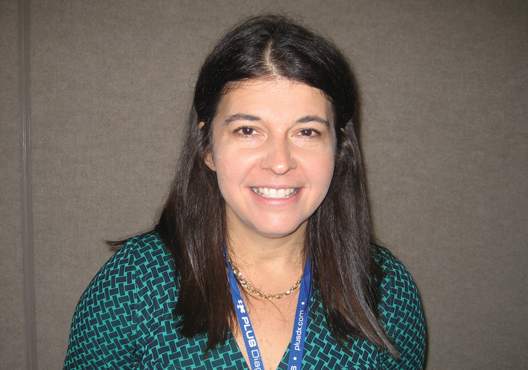Two studies of using fecal microbiota transplants to treat ulcerative colitis have had mixed results.
Researchers conducted a double-blind parallel study of 75 individuals with active ulcerative colitis (UC); 38 received fecal microbiota transplants from healthy anonymous donors, and 37 received a placebo dose of water, once a week for 6 weeks.
While the trial was terminated early for reasons of futility, among the patients who completed treatment, the authors observed a 7-week remission rate of 24% among the patients who received the fecal transplants, compared with a 5% remission rate in the placebo group – a statistically significant difference – according to the study published in the July issue of Gastroenterology (doi:10.1053/j.gastro.2015.04.001).
“The benefit was relatively modest, but our endpoint for treatment success was more stringent than most trials in UC and remission rates seen with FMT [fecal microbiota transplants] were consistent with a similar endpoint for a novel biologic therapy,” wrote Dr. Paul Moayyedi of the Farncombe Family Digestive Health Research Institute, Ontario, and coauthors.
Seven of the nine patients who achieved remission – defined as a Mayo score ≤ 2 with an endoscopic Mayo score of 0 – after the FMTs were all treated with transplants from a single donor. “The efficacy of this approach may also be donor dependent and this may explain why some case series have shown promise, and others have had disappointing results,” the authors wrote.
Those who had UC for less than a year had a significantly higher rate of remission than those who had the disease for more than a year, while patients who received the transplants showed a greater microbial diversity in their stool, compared with baseline, than did the patients in the control group.
A second study found no significant different in remission rates between patients who received donor FMTs and a control group who received autologous transplants.
In the double-blind randomized trial, 50 patients with moderately active UC were administered two transplants via nasoduodenal tube, 3 weeks apart, according to the paper published in the July issue of Gastroenterology (doi:10.1053/j.gastro.2015.03.045).
Among the 37 patients who completed the study, 30.4% of those who received transplants from donors and 20% of controls met the primary endpoint of clinical remission (P = .51), according to the intention-to-treat analysis.
In the per-protocol analysis, the difference between the active and control group was slightly greater but still did not reach statistical significance.
The authors suggested that low numbers may have contributed to the lack of effect of the donor FMTs, but the study did find that, at 12 weeks, those who had received the donor FMTs and responded to it had a microbiota similar to that of their healthy donors.
“Therefore we may assume that even though both treatment groups included responders, the subsequent effects on microbiota composition are different in the FMT-D (donor) and FMT-A (autologous) groups,” wrote Dr. Noortje G. Rossen of the Academic Medical Center, Amsterdam, and coauthors.
The first study was funded by Hamilton Academic Health Sciences Organization, and Crohn’s and Colitis Canada. Some authors declared honoraria, speaking engagements, advisory board positions, consultancies, and research funding from pharmaceutical companies. The second study was supported by MLDS and NWO-Spinoza, and no conflicts of interest were declared.



